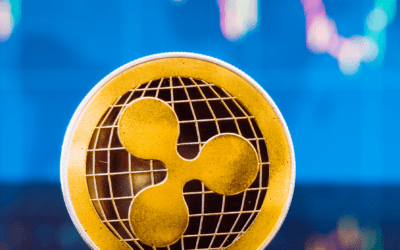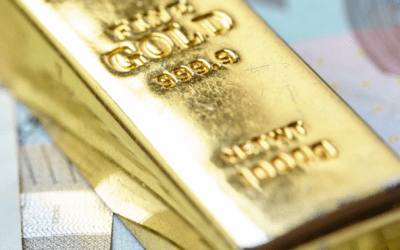Dateline: Kuala Lumpur, Malaysia Seventeenth century Holland was ruled by a class of wealthy patricians known as the regenten. Similar to Rome’s patricians, the regenten was a group of merchant families who used crony capitalism to control almost all matters of government. In typical narcissistic fashion, the Heren regenten named one of the first canals in Amsterdam after themselves. The Herengrach canal was home to the city’s “Golden Bend”, where the Herengracht maintained their homes among a lavish strip of real estate that included large mansions, carriage houses, and lush gardens. Peter the Great even stayed at one of the mansions there. While Amsterdam is still famed to this day for its canals, there is something else that hasn’t changed since the Dutch regenten ruled the place. That is, real estate did not appreciate over the course of nearly 350 years. One study conducted from 1628 to 1973 showed that, absent inflation, capital appreciation in Amsterdam appreciation was zero. That’s why I always cringe at the refrain: “Buy real estate. It never goes down.” Coming from a western background, you and I know that real estate most certainly does go down. In Las Vegas, for instance, prices fell from a peak of $299,000 for the average single-family home in 2006… all the way down to barely $100,000 a few years later. Las Vegas is now “recovering” at a slow pace and will likely never return to the bubble levels of the go-go days. At least until the next phase of irrational exuberance tempts fate. Here in fast-growing Southeast Asia, much of the real estate scene looks like an earlier version of Las Vegas. To be fair, countries here have real growth in population, income, and consumerism. But that doesn’t mean that prices won’t plateau or even drop. For instance, prices here in Kuala Lumpur are still below levels after the Asian financial crisis after two plunges in the early 1990s, but I still expect a mild correction over the next few years. Other parts of the region, such as Ho Chi Minh City in Vietnam, have outrageous property bubbles that still have to be sorted out. Meanwhile, property in parts of the tattered European Union remains overvalued. That’s one reason I often prefer seeking out cash flow over capital appreciation. For many people, getting rich (or richer) slowly and on a consistent schedule is better than taking one whack at it and hoping to succeed. And as you’ll see, you don’t have to get rich that slowly if you think a little outside the box. For me, income from real estate can be a staple of any portfolio. As an entrepreneurial investor who is used to having to generate cash flow in order to stay in business, I’m very much an “income guy”. Real estate income is just as useful for funding a move overseas in search of greater freedom as it is for generating cash to have steady cash flow to invest in other assets. There is a place for holding assets as stores of value, namely gold and silver or agricultural property, but owning an entire portfolio of rather illiquid real estate merely because that’s “what people do” to make money where you live doesn’t make much sense. It makes even less sense if you live in a country like The Land of the Free where over-priced property markets don’t even have the ongoing growth that markets here in Asia do to protect them against the next crash. Using the “five magic words” you can dramatically increase your rental yields from real estate investing. Quite simply, “go where you’re treated best”. In fact, investing in your own market is not only ill-advised as part of true international diversification but also likely not the best place to make money. If your goal is income, buying a house down the street to rent out is probably not bringing in as much money as you could make elsewhere. Let’s take an example of a friend of mine who lives in Monaco. If you can afford to live on the French Riviera, Monaco is a great place to be. It’s highly developed, beautiful, and you can avail yourself of the microstate’s zero income tax. However, Monaco has the world’s lowest real estate rental yields on record. At well under 2%, you’d make about as much money investing in Monaco real estate as you would with a so-called “high yield” savings account at an insolvent US bank. Yields in major markets in the United States aren’t much better, with most of New York City’s boroughs averaging 3% or less. The idea of tying $1,000,000 up to buy a shoebox in a city with an out of control socialist government – all to make a taxable $30,000 a year – doesn’t exactly appeal to me. However, if you are willing to look outside of your own neighborhood, you can enjoy several benefits by investing in income producing real estate overseas. First, let’s review a few benefits of owning high yield income real estate overseas…
1. Lower taxes
There are a handful of countries with low or no property taxes on real estate. Additionally, some countries take a very lax attitude toward taxing rental income. And because you are unlikely to have other income in that country, any taxes that are assessed with have a lower basis.
2. Better capital appreciation prospects
While developed countries like the US suffer the ebb and flow of booms and busts based on credit bubbles, many emerging markets have solid fundamentals backing them up. If you can find the right markets, you’ll not only enjoy a high yield but will be less likely to have the bottom fall out from underneath you.
3. All of the benefits of foreign real estate
I’m a big fan of foreign real estate for a lot of reasons, including the fact that it’s a lot harder for your local government to simply grab if they decide to start confiscating wealth.
4. Potential for future yield seekers
Just as the success of any consumer product or service invites competition that lowers prices, high yields can often suggest property prices that are out of whack with the rental market. We talk about the concept of “buying when blood is in the streets“, and a high yield can suggest that, if you choose a place with solid fundamentals, you could see appreciation when markets adjust to reality. Those reasons are on top of much higher yields. While I’m particularly fond of my high-yield tourist rental strategy, there are a number of hidden gems that offer capital appreciation, low barriers to entry, low taxes, and high yields. For ultimate yield, Chisinau, Moldova takes the cake. Moldova itself is a breakaway republic from Romania and is the poorest country in Europe. It’s also allegedly the unhappiest country on earth. But if you’re willing to deal with the country’s ongoing secession issues with its own Transnistria region, real estate in the capital city pays an average 10% yield. Some projects have gotten into the 20% range. That’s a safer 20% return than storing your cash in a money-laundering Ukrainian bank next door. If you crave a little more stability, countries like Montenegro – where I reported from this past summer – offer the prospect of future EU membership along with a bustling tourist season. Gorgeous beaches and scores of beautiful Russians coming in every year don’t hurt the appeal. If you hate being a landlord out of fear of getting paid, Amman, Jordan might be for you. In that Middle Eastern city, leases are customarily paid for a full year in advance. Nicaragua offers a growing amount of tourism combined with yields in the 7-8% neighborhood. Or you can buy an ocean view home near the beach for as little as $100,000 and rent it to visitors for up to $100 a night. I’m such a fan of Nicaragua as the “next big thing” in Central America that I’m holding a three-day, boots-on-the-ground investment tour there for Members of The Nomad Society this November. Nearby, Panama offers the benefits of relative stability, a peg to the US dollar, low taxes, and high yields. Select Panama City real estate earns low double-digit yields with a relatively low price point. The key to finding the best rental yield markets is doing your homework and understanding everything you’re getting into. Budapest, Hungary is a gorgeous city – perhaps the most beautiful in Europe – and I’d love to invest there if the ultra-cheap real estate didn’t require making a long bet on Hungary’s worthless forint currency that the government seems to love devaluing. Likewise, the Philippines is an interesting place, but I recently took a more negative opinion on the luxury apartment scene than I had before. If you had a Filipino citizen to invest with, however, there are some excellent and rather cheap opportunities for properties foreigners can’t own.









